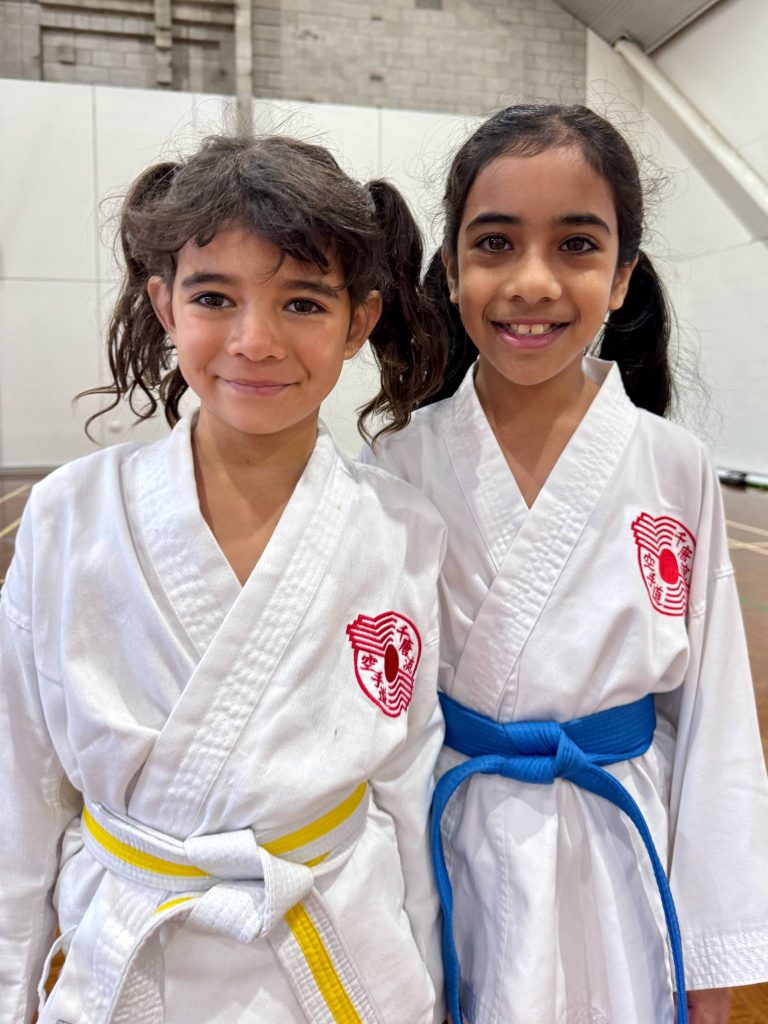As parents, one of our deepest desires is to see our children thrive. We want them to look, feel, and be confident, navigating through life’s challenges with a positive attitude and a sense of self-assuredness.
We dream of seeing them stand tall, face their fears, and embrace their potential with open arms. Yet, this desire often comes with its own set of challenges and heartaches.
It is profoundly painful to witness our children feeling isolated, sad, and negative. The sight of them shying away from social interactions, avoiding eye contact, or not wanting to try new things can be heart-wrenching.
As parents, we are left feeling helpless and worried, constantly searching for ways to support them and boost their confidence. These moments of struggle can create a ripple effect, impacting their overall well-being and hindering their ability to form meaningful connections with others.
While we may never fully comprehend the unique struggles each child faces, we have had the privilege of helping many parents support and guide their children through these challenging times.
Our experience has shown us that with the right tools and environment, children can learn to overcome their fears and develop a strong sense of self-worth.
This is one of the primary reasons why we teach karate. Karate is more than just a martial art; it is a journey of self-discovery and empowerment. Through disciplined practice and the support of a like-minded community, participants gradually take control of themselves, leading to greater confidence and happiness.
Building Physical and Mental Strength
Karate training involves rigorous physical activity, which helps children develop strength, coordination, and flexibility. These physical benefits are accompanied by mental growth, as children learn to focus, set goals, and persevere through challenges.
“Physical activity is not only crucial for a child’s physical development but also for their cognitive development. It helps improve concentration, behavior, and academic performance,” says Dr. John Ratey, author of Spark: The Revolutionary New Science of Exercise and the Brain.
The sense of accomplishment that comes from mastering a new technique or earning a new belt fosters self-esteem and a belief in one’s abilities. This combination of physical and mental training equips children with the resilience needed to face obstacles both on and off the mat.
Developing Self-Discipline and Respect
Karate instills a strong sense of self-discipline and respect, both for oneself and others. Children learn the importance of following rules, listening to their instructors, and treating their peers with kindness and respect.
“Martial arts training, particularly karate, teaches children the value of respect and self-discipline. These lessons translate into improved behavior at home and school,” explains Sensei Michael F. Matsuda, President of the Martial Arts History Museum.
This disciplined environment helps them understand the value of hard work and the rewards that come from consistent effort. These lessons extend beyond the dojo, influencing their behavior at home and in school, and shaping them into respectful, disciplined individuals.
Encouraging Social Interaction and Teamwork
Training alongside peers who share similar goals creates a supportive and encouraging community. Children build friendships and learn the importance of teamwork, cooperation, and mutual respect.
“Children who engage in group activities, like martial arts, develop better social skills and a sense of belonging. This is crucial for their emotional development,” says Dr. Amanda Gummer, a child psychologist and founder of The Good Play Guide.
These social interactions are crucial for developing confidence in social settings and overcoming feelings of isolation. By participating in group activities and team exercises, children learn to communicate effectively, build trust, and support one another, fostering a sense of belonging.
Enhancing Emotional Resilience
Karate teaches children how to manage their emotions, handle stress, and stay calm under pressure. Through sparring and other controlled scenarios (participating in tournaments), they learn to face their fears and respond to challenges with a clear mind.
“Martial arts help children develop emotional control and resilience. They learn to cope with stress and setbacks in a healthy way, which is essential for their mental health,” notes Dr. Karen F. DeBord, a child development specialist.
This emotional resilience is invaluable in helping them navigate the ups and downs of everyday life. The ability to remain composed and focused under stress is a skill that will benefit them in school, relationships, and future careers.
Providing a Sense of Achievement
Each milestone in karate, whether it’s mastering a new kata or advancing to the next belt, provides a sense of achievement and progress. Celebrating these successes, no matter how small, reinforces a positive self-image and encourages children to keep striving for improvement.
“Achieving goals in martial arts can significantly boost a child’s self-esteem and confidence. They learn that hard work and perseverance pay off,” says Dr. Robyn Silverman, a child development specialist and author of Good Girls Don’t Get Fat.
This continuous cycle of setting goals, working hard, and achieving success builds a growth mindset, teaching children that they can achieve anything they set their minds to with dedication and effort.
The Power of a Like-Minded Community
One of the most powerful aspects of karate training is the community it fosters. Being part of a group of individuals who are all working towards similar goals creates a sense of belonging and support.
“Belonging to a community where everyone is striving for self-improvement creates a powerful support system. It encourages children to persist through challenges and celebrate successes together,” says Sensei Mary Stevens, a karate instructor and author.
This supportive network provides encouragement and motivation, helping children stay committed to their practice and overcome any challenges they face. The friendships and connections made within this community are often lifelong, providing a stable support system that extends beyond the dojo.

